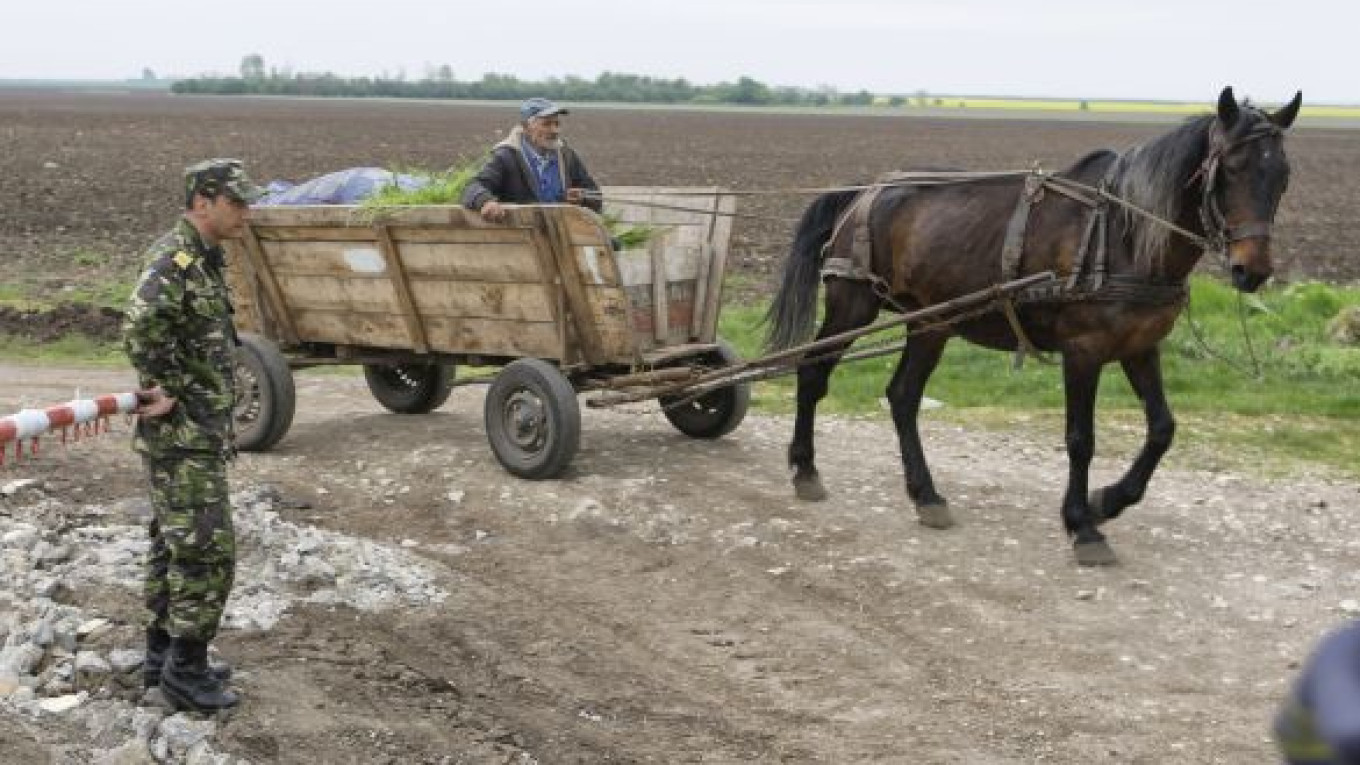A senior U.S. official on Wednesday urged Russia not to be alarmed by Romania's surprise announcement that it would host a U.S. missile defense site at a Soviet-built base.
The Russian Foreign Ministry sharply criticized the Romanian decision to turn Deveselu, a small town in Romania's deep south, into the core of the U.S. defense system in Europe overnight, and the Kremlin asked the United States for legal guarantees that the system would not target Russia's strategic nuclear forces.
"Moscow is monitoring the events very closely because, in our opinion, the prospective missile defense system may create risks for the Russian strategic nuclear deterrence forces in the future," the Foreign Ministry said in a statement.
But U.S. Undersecretary of State Ellen Tauscher said the U.S. system posed no threat to Russia.
"We have good relations with Russia. We have just ratified the New START treaty, we are working together on various other issues," she told Romanian lawmakers in remarks carried by news agencies. "It is a system that will defend NATO and, if Russia chooses to work with us in a cooperative manner, the system will defend Russia, too."
Tauscher is to meet with Deputy Foreign Minister Sergei Ryabkov on Thursday.
She and Romanian President Traian Basescu on Tuesday traveled to the abandoned Deveselu base, located some 200 kilometers southwest of Bucharest in an area known for watermelon and corn. It was built with Soviet help in 1952, when the first MiG-15s landed there.
An estimated $400 million will be invested in the base, which will become operational in 2015. An average of 200 troops will be based at the site, which can host a maximum of 500, Basescu said. The base will remain under Romanian command.
Moscow wasn't the only one caught off-guard by the base decision. Romanian government officials were apparently unaware of it, and there was not even a whisper in the Romanian media until Basescu announced it Tuesday night. Local officials weren't informed, or asked for their approval, until the night before.
A senior State Duma deputy warned that Russia would take counter measures aimed at protecting itself, although not targeted at any particular entity.
"Military specialists in the United States, NATO and Romania should be absolutely aware that any measure entails counter measures," said Konstantin Kosachyov, who heads the Duma's International Affairs Committee, RIA-Novosti reported.
Basescu insisted that the agreement had serious benefits and would give Romania "the highest security level in its history."
Basescu said the remote base was chosen because it fulfilled all of the 120 requirements needed to guarantee the full security of the system.
The Romanian site is part two of a four-part plan that U.S. President Barack Obama's administration outlined in 2009, when it shelved a plan by the previous administration to use long-range interceptors based in Poland to counter a threat from Iran and North Korea. That plan was opposed by Russia, which worried that the system could target Russian warheads or undermine the Kremlin's deterrence strategy.
The Obama administration has said its plan — designed to counter the threat of short- to medium-range missiles — would be more effective and able to counter a threat from Iran earlier. But critics have said the new plan caved in to Russian demands and have doubted whether the administration could build an effective shield in the timetable promised.
(AP, MT)
A Message from The Moscow Times:
Dear readers,
We are facing unprecedented challenges. Russia's Prosecutor General's Office has designated The Moscow Times as an "undesirable" organization, criminalizing our work and putting our staff at risk of prosecution. This follows our earlier unjust labeling as a "foreign agent."
These actions are direct attempts to silence independent journalism in Russia. The authorities claim our work "discredits the decisions of the Russian leadership." We see things differently: we strive to provide accurate, unbiased reporting on Russia.
We, the journalists of The Moscow Times, refuse to be silenced. But to continue our work, we need your help.
Your support, no matter how small, makes a world of difference. If you can, please support us monthly starting from just $2. It's quick to set up, and every contribution makes a significant impact.
By supporting The Moscow Times, you're defending open, independent journalism in the face of repression. Thank you for standing with us.
Remind me later.


